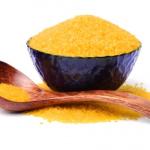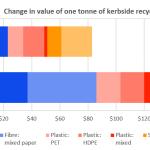The departure of Soup CEO Denise Morrison is the fifteenth CEO change at a large packaged food company in the last two-and-a-half years. What do they all share in common?
Food & Nutrition
In an official response from the U.S.
A new study in Science Advances claims that more carbon dioxide in the atmosphere will cause food to become less nutritious. That very well might be true.
For most of our evolutionary history, humans worried about food — finding and eating food were constant and dangerous struggles. Death was always near.
The head of the World Health Organization claims that trans fats - which are in things like margarine and donuts - are responsible for 500,000 deaths each year
Saunas, for the most part and for legions of adults, enjoy a warm reputation as being good for you. And a recent study, while not being totally conclusive, does tend to add more credence to the health benefits of sauna use.
“At all costs” breastfeeding messages are a consistent refrain from
You, the one trying to get pregnant, put down the Big Mac and pick up fruit it could save you up to a month of effort – a least according to a study in Human Reproduction.
A few weeks ago, the media ran wild with an outlandish claim that an extra glass of wine will take 30 minutes off of your life.
Australian Federal Environment Minister Josh Frydenberg met recently with his state and territory counterparts. Top of their agenda? The recycling crisis precipitated by the China “ban.”












